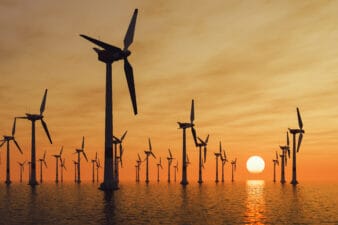Natural gas is caught in a protracted slump and is trading at under US$2 per million British thermal units (MMBTU). Despite growing consumption of what is known as the clean fossil fuel, there are few positive catalysts that will drive the price higher for the foreseeable future, particularly amid growing fears of a global economic slump weighing heavily on fossil fuel prices.
While this has hit natural gas stocks hard to see many such as Painted Pony and Peyto Exploration & Development lose over 30% since the start of 2020 Canacol Energy has only lost 4%.
There are a range of reasons for this, the key being Canacol’s ability to profit from the unique dynamics associated with Colombia’s energy market where an emerging energy crisis allows it to lock-in prices significantly higher than the North American benchmark.
Canacol is poised to rally higher once the pessimism surrounding the global economic outlook and demand for energy subsides.
Growing natural gas reserves
Canacol recently announced that its proven and probable natural gas reserves, located in Colombia’s lower Magdalena Valley, had grown by 12% year over year to 624 billion cubic feet, giving Canacol an impressive reserve replacement ratio of 224%. Those reserves will continue to grow at a steady clip because Canacol has an impressive exploration success rate of 83%.
That notable increase in Canacol’s proven and probable natural gas reserves has given its after-tax net-asset-value (NAV) a solid lift, seeing it worth $8.87 per share after deducting long-term debt, tax liabilities, leases and decommissioning as well as other long-term costs.
Canacol’s NAV is around double its current market value, thereby highlighting the tremendous upside that exists for investors, even if the North American Henry Hub benchmark natural gas price doesn’t recover.
Colombia is experiencing a natural gas shortage. When that’s considered in combination with Bogota’s budgetary headaches, weak fiscal position and worsening balance of trade, there’s a considerable incentive to pay higher than spot prices to secure suitable domestic supplies.
This is because the Colombian government is under considerable pressure to attract foreign investment in the domestic energy patch and boost hydrocarbon reserves as well as production.
It’s this combination of rapidly declining production, notably in Colombia’s aging offshore gas fields, along with a dearth of recent major natural gas discoveries and growing demand that forced the country to start importing natural gas in 2017.
These factors have allowed Canacol to secure take and pay contracted prices for the natural gas that it produces of US$4.84 per MMBTU net of transportation expenses, which is 2.6 times greater than the current Henry Hub price.
That gives Canacol a handy advantage over its North American peers and predicting 2020 EBITDA of US$265 million and free cash flow of US$80 million.
If Canacol can meet its projected 2020 earnings, which is likely given that natural gas sales are expected to expand by 37%, then its stock will soar.
During 2019 the driller elected reward patient investors by paying a quarterly dividend with a juicy yield of 4.7%. Given the rapid growth of Canacol’s sales and earnings, the dividend appears sustainable.
Foolish takeaway
Canacol’s ability to rapidly expand its natural gas sales and earnings combined with the unique opportunity that exists in Colombia’s energy market makes the company an attractive investment.
This is particularly the case given that Canacol is trading at a deep 101% discount to is after-tax NAV, illustrating the considerable gains ahead, making now the time to buy.







